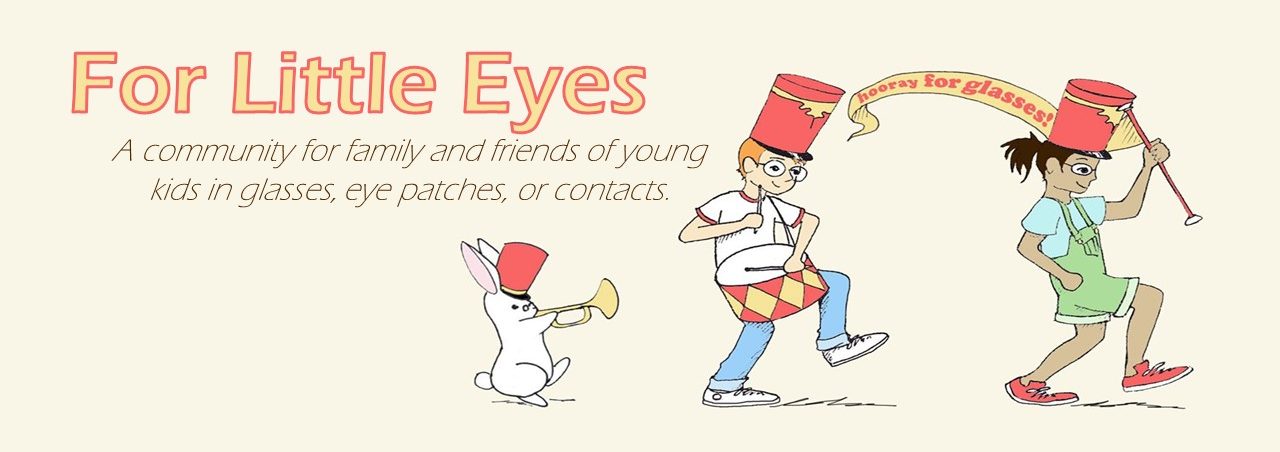Mister Rogers was gifted at helping children face unfamiliar and often scary situations of all kinds, including doctor and dentist visits. But imagine my surprise when I learned last month that he had also co-written a chapter of an ophthalmology book, Duane’s Ophthalmology.
He and a colleague at Family Communications, Hedda Sharapan, were asked by a Pittsburgh pediatric ophthalmologist to help to write the chapter “Physical and Psychological Preparation of Children for Anesthesia and Surgery.” Their part was looking at the psychological preparation. But that section doesn’t just talk about preparing a child for ophthalmologic surgery, it covers some of the special considerations of working with children during eye exams. And while it’s targeted at Ophthalmologists, I found it extremely readable, fascinating, and helpful. It’s written in his straightforward style and puts the child’s fears and concerns front and center. The section begins,
“You were a child once, too. That may be obvious, but knowing that and remembering what it was like being a child can make a significant difference in the relationship between you and your child patient. Some children are fortunate enough to be treated by physicians who recall the feelings of being a powerless vulnerable child.”
On the topic of general eye exams, he writes about the fact that people of all ages are especially sensitive about their eyes:
“People of all ages may be especially sensitive about their eyes. In our feeding experiences right from birth, as infants we actively use our eyes to search the face of the person who is feeding us, reading that face like a road map to gather information about the world. At that time in our lives, our eyes help us find answers to the most basic question, “Is the world a good and trustworthy place?” As we grow, we continue to rely on our eyes as an important source of our sense of self, independence, and knowledge of what’s going on around us.”
Because of this, eye exams, though they rarely hurt, can be upsetting and difficult. Exams generally go much better when kids are prepared for what’s to come, and when they are able to move their head freely, rather than having their head turned one way or another with a hand on the top of their head.
There are even tips for making eye drop administration easier, including:
- Explain that the drops are important for looking at the eye.
- Do not surprise the child with the drops, but tell him that they’re coming.
- Be honest that the drops may sting.
- Describe the drops as being “like looking up into the raindrops” or “like being splashed” and ask if the child has looked up into raindrops, or been splashed before. (This sounds lovely, I love the poetry of “looking up into the raindrops”, but I’ll admit, given our fights with Zoe and getting eye drops, I’m pretty skeptical that it will actually help. I’m still going to give it a shot.)
- Demonstrate giving the eye drops on a doll or stuffed animal first.
He’s similarly thoughtful and spot-on when writing about what us parents are going through:
“Along with medical concerns for their child, parents also bring to your office their emotional concerns. Whenever a child has any problem (major or minor), parents tend to feel vulnerable, sometimes powerless, and often guilty. Everyone longs to have a perfect child, and when that dream is marred by some problem (no matter how small), parents often need extra doses of reassurance and trust from the physician and the staff.”
I encourage everyone to read the full section. And when you’re done, if you’re feeling nostalgic for Mister Rogers, enjoy this tribute by Symphony of Science’s John D. Boswell and PBS Digital Studios.
References:
- “A Special Day in the Neighborhood Mister Rogers Celebrates 30 Years of Making Us Feel Good about Ourselves.” Pittsburgh Post – Gazette, Jan 18, 1998.
- Jane M. Breck, Fred M. Rogers, Hedda B. Sharapan, and Albert W. Biglan, “Chapter 80, Physical and Psychological Preparation of Children for Anesthesia and Surgery, Part 2: Psychological Preparation for Anesthesia.” Duane’s Ophthalmology on CD-ROM, 2006 Edition. Lippincott Williams & Wilkins. http://www.oculist.net/downaton502/prof/ebook/duanes/pages/v6/v6c080.html#part

![Fred Rogers in the late 1960s. By KUHT [CC0], via Wikimedia Commons](https://forlittleeyes.com/wp-content/uploads/2013/03/fred_rogers.jpg?w=237&h=300)
Thanks for this post! As the dad I’ve been the one asked to do some brief but traumatic restraint during eye exams of my 2 yr old daughter who dislikes her exams. I wish I knew about this sooner but at least now I can be as sensitive as possible to her feelings during the exam.
LikeLike
I’m pretty sure I’ve done the same with Zoe (and she has also always disliked eye exams). I wish I’d read this earlier, too. I think we do the best that we can, though, with what we know at the time.
Best to you and your daughter!
LikeLike